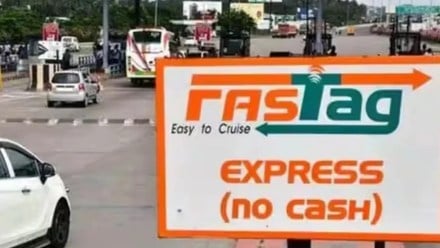PeakXV-backed car-services platform Park+ is intensifying its focus on its FASTag distribution business. With Paytm accounting for over a quarter of the 82 million Fastags in India, its exit from the Fastag distribution business has created an opportunity that Park+ is strategically positioned to seize.
The company is currently distributing 350,000 FASTags a month, said Amit Lakhotia, founder, Park+. Lakhotia, a former colleague of Paytm’s founder Vijay Shekhar Sharma, told FE: “In February we distributed around 250,000 FASTags. This grew to 350,000 in March, and we expect to do about 450,000 in April.”
The company had aimed to achieve profitability on a quarterly basis of the last quarter of FY24. Lakhotia said that the company has not managed to hit its profitability target. Instead it now projects to turn profitable by the end of June.
Park+, which can distribute FASTags but not issue them, has inked partnerships with multiple banks to facilitate this service for its customers, including IDBI, IDFC, Kotak, Axis, Airtel Payments Bank, INDUSIND, and HDFC Bank. It has also recently collaborated with food delivery and quick commerce giant, Swiggy, to enable the delivery of FASTags in under 10 minutes.
Distributors like Park+, who refer customers to banks, earn a one-time commission on the registration fee, as well as a recurring commission each time a car passes through a toll. The FASTag distribution business is estimated to offer an opportunity worth `2,000 crore in annual revenue.
The company is currently exploring partnerships with several other banks and distribution partners, as confirmed by Lakhotia. “Discussions are ongoing at various stages. Some may go live in the next few days, while others may take more time. We are currently the largest FASTag distributor in terms of volume. Banks are eager to partner with us as we have maintained a clean application and distribution process,” Lakhotia added.
Furthermore, the company plans to establish multiple touchpoints for customers to purchase and recharge FASTags, which Lakhotia believes will be the true differentiator in a competitive market.
“80% of people realise they have a problem with their FASTag only once they are already on the road. If a customer raises an issue with the bank at that point, it could take a minimum of 3-6 hours to resolve. We are deploying personnel at multiple touchpoints in-between and toll gates to address and resolve these issues in real-time, which will be an industry-first feature expected to roll out by the end of this month,” the founder said.
“Although 95-97% of cars in India have a FASTag, about 25-30% of them do not have sufficient balances, leading to blacklisting. Our on-ground personnel will be trained to assist customers with recharges, bank refund issues, etc.”
“It is not about getting a FASTag. Getting it is a one-time activity. Making sure that it runs seamlessly, is a bigger opportunity. With our multiple partnerships, and grievance redressal mechanism at multiple touch points, we expect our success rate to be at 99.6-99.7%, while others would be at around 97-98%,” Lakhotia stated.
“That being said, this will not be a problem that can be solved very easily. Every person that we could deploy may not be very well educated in solving different customer problems. So we expect this roll-out to happen in a phased-manner and for us to go through our product feedback journey in the next three to six months where it will be improved incrementally.”
“While we haven’t met our exact target of being profitable, the revenue numbers have gone up significantly. Our burn has also come down by 50%. By June we expect our cash burn to come down to 0%,” Lakhotia added.
In FY23, the four-year-old company generated revenue of approximately `100 crore, with 45% of it coming from commissions earned on FASTags. “In terms of margins, on a standalone basis, FASTags already constitute a breakeven business for us,” he said.
